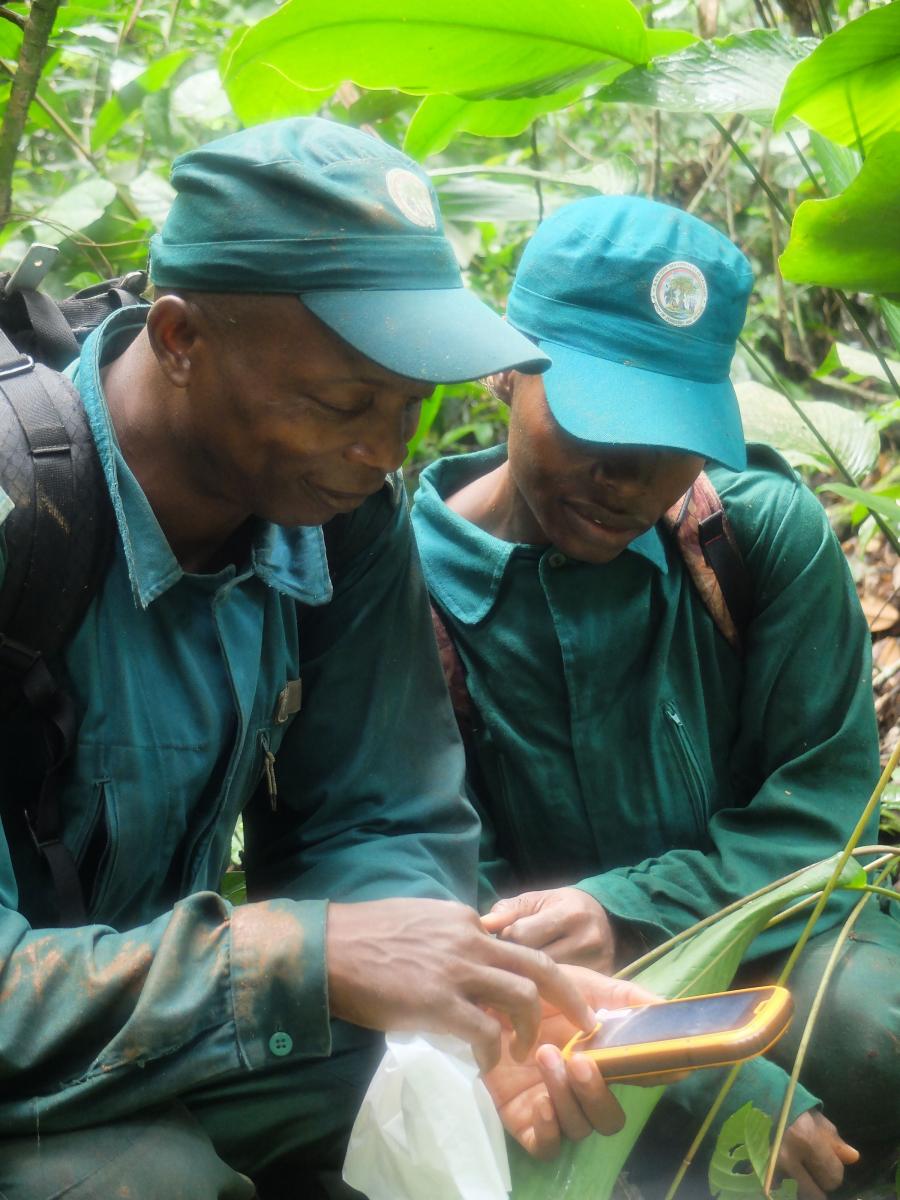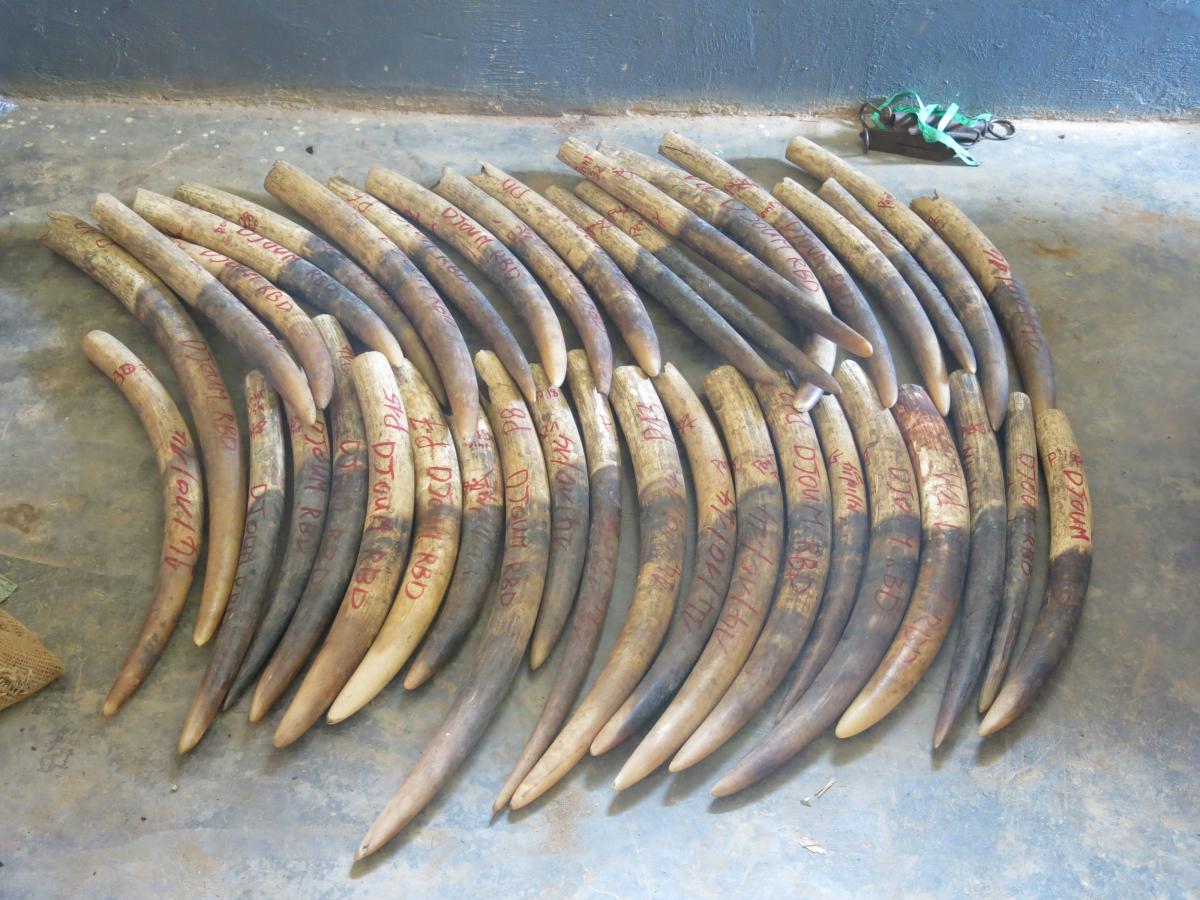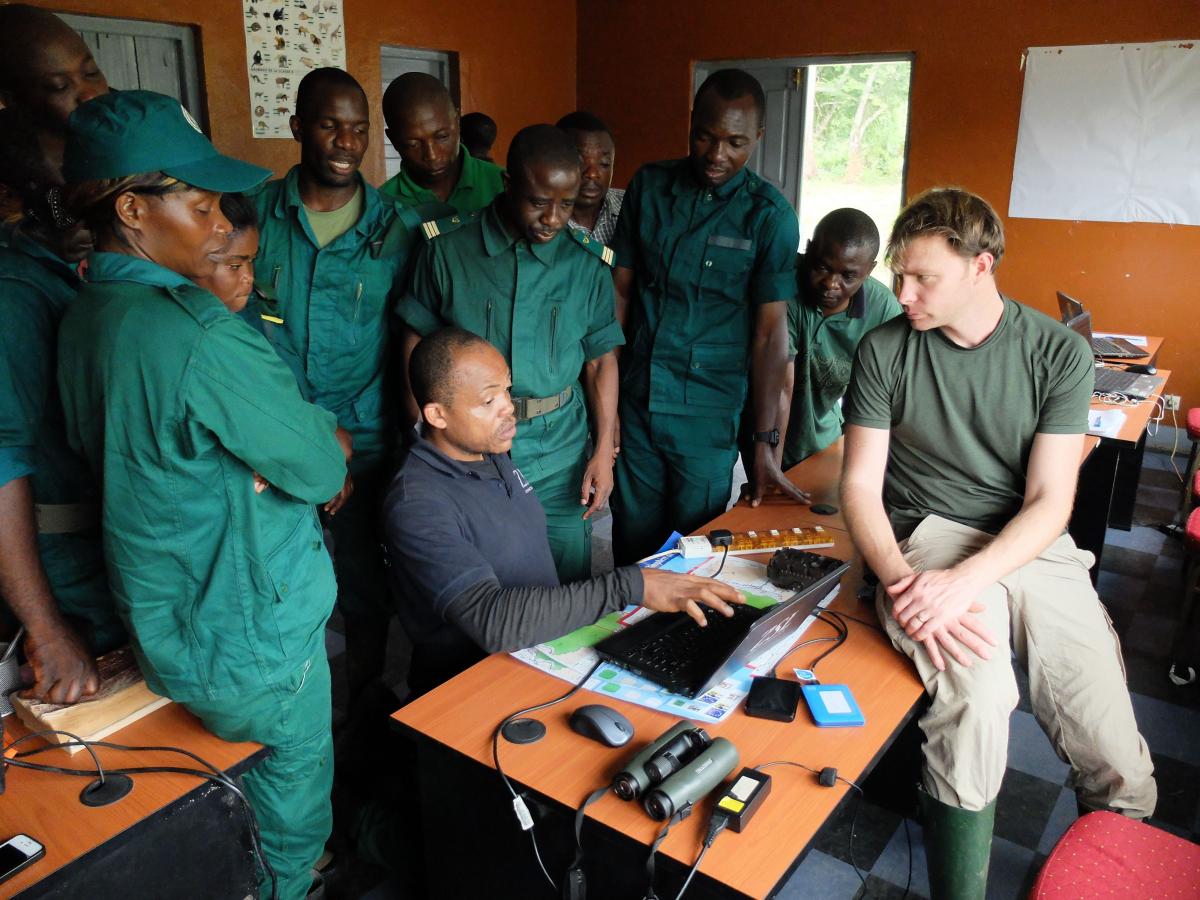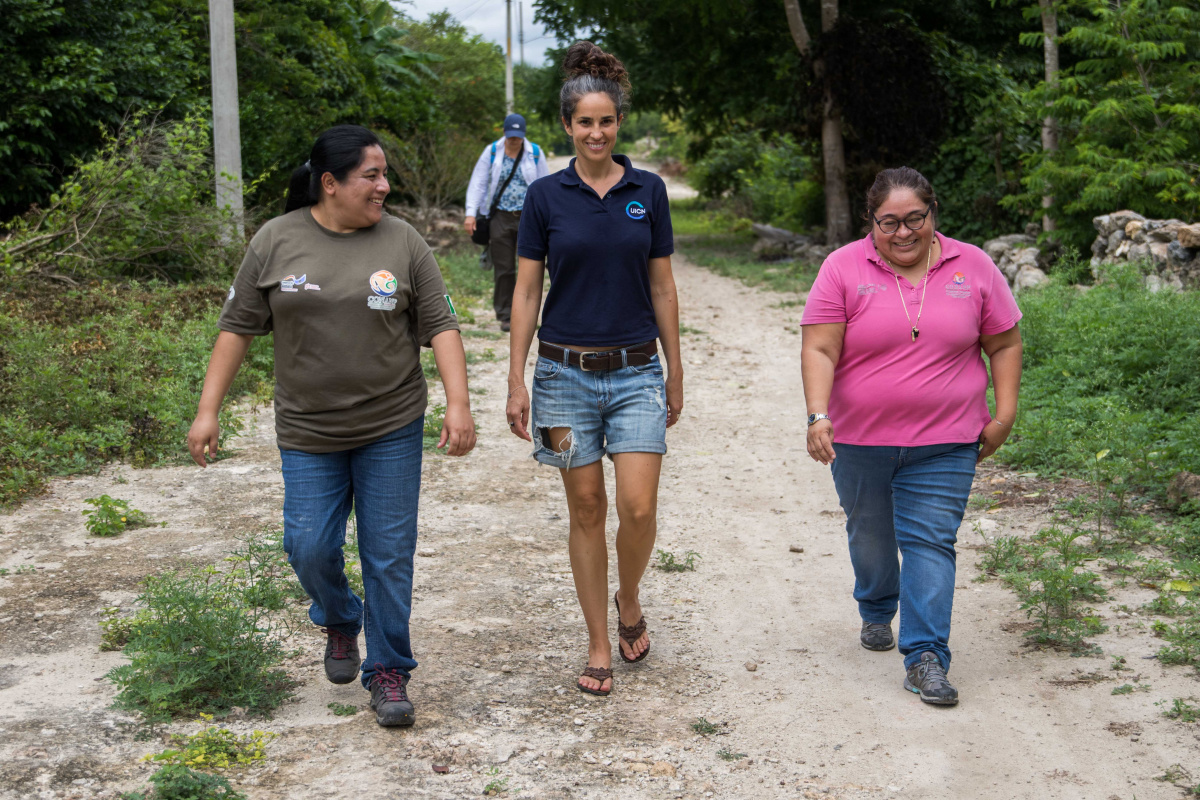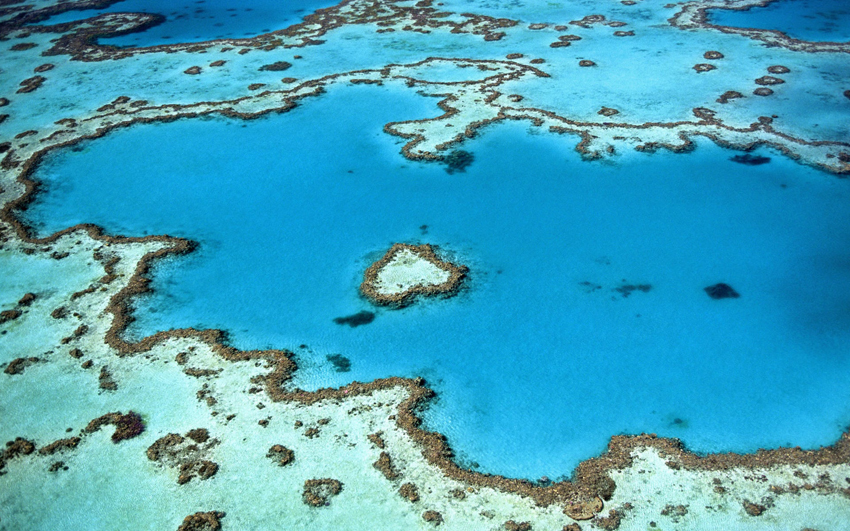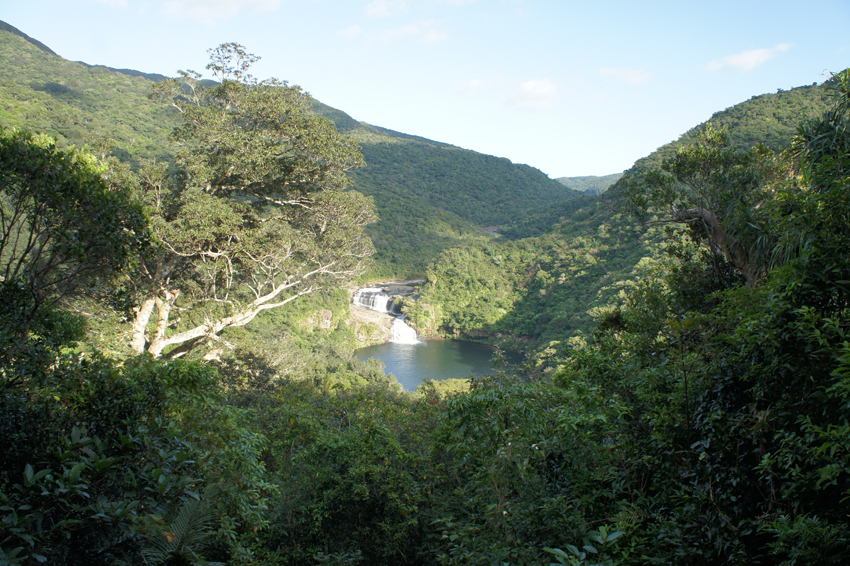First IUCN World Heritage Outlook Partners set to translate knowledge into action in pilot sites
Civil society organisations are joining IUCN’s efforts to boost the conservation of natural World Heritage sites facing major threats. The partnerships aim to take advantage of the knowledge provided by the IUCN World Heritage Outlook and translate it into action on the ground. Some pilot sites have been identified, including Dja Faunal Reserve, which is threatened by elephant poaching.
IUCN is pleased to announce African Wildlife Foundation (AWF), Wildlife Conservation Society (WCS) and the Zoological Society of London (ZSL) as its first ‘Outlook Partners’, contributing to the effectiveness of the IUCN World Heritage Outlook – the first global assessment of natural World Heritage sites launched in 2014 and due to be updated every three years.
By establishing site-specific partnerships with the Outlook Partners, IUCN aims to raise the conservation prospects of natural World Heritage sites that need it most. The objective is to develop initiatives and projects, collaboratively with Outlook Partners, to help address the main challenges that these sites are facing and improve the effectiveness of their conservation.
“We welcome IUCN’s World Heritage Outlook as it provides us with an improved and standardised assessment of the conservation status of natural World Heritage sites, as well as the threats they face and effectiveness of management,” says Dr Noëlle Kümpel, Policy Programme Manager of ZSL. “It therefore helps to guide management efforts, including the support of partners such as us. ZSL is proud to be partnering with IUCN to support the World Heritage Outlook.”
The IUCN World Heritage Outlook provides conservation outlook assessments for all natural and mixed (both cultural and natural) World Heritage sites according to the state of values, threats and management.
“WCS especially values the comprehensive nature of the Outlook assessments, encompassing all natural and mixed World Heritage sites around the world, as well as the plan to repeat the assessments every three years so as to highlight trends both at individual sites and across the full World Heritage network,” says Matthew Hatchwell, Director, International Policy and Programme Development of WCS.
While two-thirds of natural World Heritage sites have a positive conservation outlook and are likely to be well conserved over time, 29% face significant concerns and 8% of the sites are assessed as critical.
“The IUCN World Heritage Outlook provides a valuable process for assessing natural sites with World Heritage status in order to recognise good conservation practice and support the role of these sites in demonstrating excellence,” says Andrea Athanas, Programme Design Manager of AWF. “AWF welcomes the opportunity to become an Outlook Partner and to share experiences with other partners.”
Recently, IUCN coordinated the first World Heritage Outlook Partners workshop in Cambridge, UK, to identify potential pilot sites where the partnerships can be tested. One of the partnership pilot sites identified is Dja Faunal Reserve in Cameroon, where AWF and ZSL have been working to tackle the illegal poaching of elephants among other threats.
“World Heritage sites should be the best conserved protected areas on Earth, yet they face severe threats such as illegal wildlife trade, extractive activities and dam developments,” says Cyril Kormos, Vice Chair for World Heritage at IUCN-WCPA. “The conservation of these iconic sites is a collective responsibility and the IUCN World Heritage Outlook offers a sound platform to boost collective efforts.”
Alongside AWF, WCS and ZSL, the Outlook Partners workshop was attended by representatives from BirdLife International, Global Witness, Fauna and Flora International (FFI), the World Wide Fund for Nature (WWF-International), and the Royal Society for the Protection of Birds (RSPB).
The first round of conservation outlook assessments was led by IUCN’s World Heritage Programme in close collaboration with hundreds of experts of IUCN’s World Commission on Protected Areas (IUCN WCPA), who provided independent knowledge and expertise.
With the next update and global report planned for 2017, WCPA experts will continue to play a key role in the preparation of the next cycle of conservation outlook assessments. The Outlook Partners add another valuable layer of support in ensuring the accuracy of assessments of threats and conservation status at the site level.
How can you get involved?
Outlook Partners can be IUCN Members as well as other civil society organisations who are involved in World Heritage related activities. To find out more, visit www.worldheritageoutlook.iucn.org or contact worldheritageoutlook@iucn.org.
